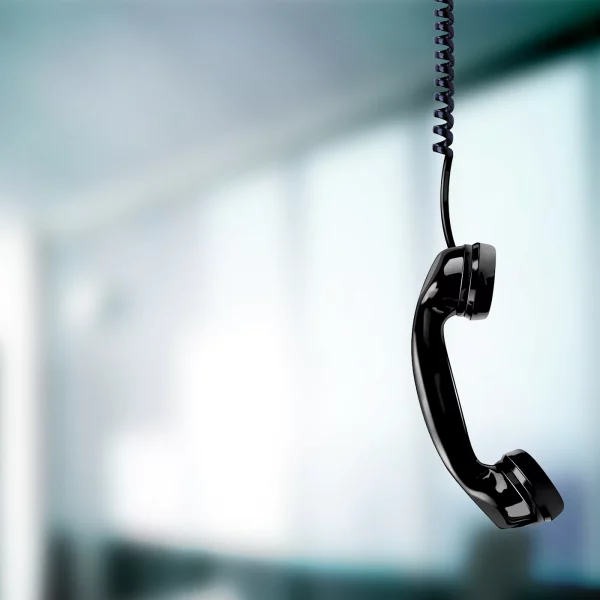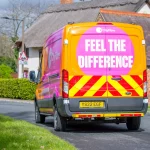Zen Internet Survey Claims 52 Percent of Brits Still Have a Landline

A new Censuswide survey conducted on behalf of UK broadband ISP Zen Internet, which involved 2,000 nationally representative UK consumers aged 16+ (surveyed during Q1 2025), claims to have found that 52% of Brits still have a landline, yet only 15% use it regularly. But only a third intend to take (or have already) the digital voice alternative when the switchover occurs.
The survey, which has been timed to coincide with the anniversary of the invention of the telephone by Alexander Graham Bell in 1876 (due to be celebrated tomorrow), reminds readers about the upcoming switch from the old Public Switched Telephone Network (PSTN) to IP-based digital phone (VoIP etc.) services.
Just to recap. The big switch-off was last year delayed to 31st January 2027 in order to give broadband ISPs, phone providers, telecare operators and consumers more time to adapt (details). But the main focus of this delay was the 1.8 million people who use vital home telecare systems in the UK (e.g. elderly, disabled, and vulnerable people), which aren’t always compatible with the replacement VoIP / IP-based digital phone services (i.e. for everybody else the deadline is still technically Dec 2025).
Advertisement
However, Zen’s survey found that 29% of respondents are still unsure about the switch, while 34% say they won’t maintain a phone connection other than mobile. Interestingly, 44% of 25-to-34 year olds are still choosing to retain a landline when the switch off happens. The main reasons cited for keeping a landline is as a backup in case of poor mobile reception (41%) or to stay in touch with elderly relatives who prefer the traditional dial tone (39%).
In the survey, older generations said they felt landlines gave “better call quality” (often this is not the case) and “a more personal feel“, but Zen said the reality is that most landlines now sit unused, collecting dust while households juggle multiple smartphones.
Zen’s survey also found that only 34% of respondents could remember friends’ or family members’ landline or mobile numbers. A surprising number of Brits struggle to recall even one mobile number, despite carrying a phone packed with hundreds of contacts.
Stephen Warburton, MD of Zen’s Retail Division, said:
“While the nostalgia surrounding our experience of landline phones over the decades is entertaining, our survey highlights some real concerns. Nearly half (46%) of landline users worry that removing home phones could lead to more loneliness, particularly for older generations. Two-thirds (66%) also fear that without landlines, grandparents and elderly neighbours will struggle to stay connected.
As for the switch to Digital Voice, there’s still widespread uncertainty. According to our survey, over a third (34%) of Brits have little or no understanding of the impending shutdown, with confusion highest among women (41%) and younger generations.”
Naturally, Zen Internet has a vested interest here, as they’re in a position to help with such transitions.
Advertisement
Mark is a professional technology writer, IT consultant and computer engineer from Dorset (England), he also founded ISPreview in 1999 and enjoys analysing the latest telecoms and broadband developments. Find me on X (Twitter), Mastodon, Facebook, BlueSky, Threads.net and Linkedin.
« Virgin Media O2 Reveals Some Internet Traffic Trends of UK Children






















































Many people don’t know their mobile number. ‘I never call myself’.
> Brits still have a landline, yet only 15% use it regularly.
And Zen are also causing this (saying it as a Zen customer). I get unlimited calls on 1pmobile for £4 a month. This sim is in a GSM2SIP box and I have cheap VOIP phones scattered around so the user experience is closely matching that of a landline.
The same would cost £17.99 from Zen and I don’t know if they would be willing to hand over the calls on SIP (I am using the router they provided in modem mode, so I don’t think their digital voice service would work for me).
Maybe if Zen would also offer a £4 unlimited call package instead of £17.99 the uptake would be better.
We pay Zen £6 for 1500 minutes a month on voip and that works well for us
Main downside I’d have with your solution is the phone number, the person I live with who actually uses the phone still wants the ‘landline’ number for inbound and outbound. I know there’s some theoretical workarounds but then it also complicates thing e.g. things go wrong, CID spoofing is blocked, etc.
On a side note, I just checked and depending on usage, Zen does offer 1000minutes for £6pm and when I asked them a few years ago, they said they would provide SIP details but it’s unsupported, I don’t know if this has changed.
Absolutely, most mobile call packages are far cheaper than their landline (or VOIP) equivalents therefore it is an obvious choice for most customers.
Sorry you are correct it is 1000 mins. However my partially deaf partner finds landlines clearer and it is a small amount to pay for contact. And yes we both have mobiles too. It’s what money is for.
Until recently I ‘kept the faith’ and remained a proponent of keeping a landline, for a variety of reasons – as useful backup, as a way of calling a fixed place (i.e. a household) rather than a specific person, as a way of filtering certain types of calls (i.e. give a landline number instead of mobile for certain activities / to certain people), etc etc.
I was also a proponent of unbundling your landline from your broadband provider, i.e. porting the number to a SIP-based VoIP service (such as A&A).
However increasingly I realise that ‘what’s the point’… perhaps I was caught up in a nostalgia or romanticism for the old ways. However what with SIP-based VoIP not really working with broadband connections that use CGNAT, and with many altnets now using CGNAT, part of the supposed ease of having an ‘unbundled’ landline and being able to swap and change between different broadband providers is made more complex.
And the ubiquity of cheap mobile phone plans, and the fact that with VoWifi / WiFi calling you have a simple voice solution that (mostly) just works, people just aren’t going to bother with landlines.
I will keep my landline, but I think I’ll stop swimming against the tide and give in – domestic landlines have had their day!
Claim: “52% of people still have a landline (but only 15% of people regularly use one).”
Reality: 85% of people rarely – if ever – use a landline.
We have 2 x landlines. 1 from Virginmedia and 1 from BT.
We were contacted by VM about converting the phone line to IP in 2023, the process was completed in early 2024, as scheduled.
We have not been contacted by BT about moving to Digital IP at all. No letters, no texts, no nothing.
And which company is making the most noise about CPs moving their customers to All IP?
Yep, BT.
Guess that doesn’t include their own customers though.
It’s being done on an exchange by exchange basis or when contracts come up for renewal, if when people move to FTTP.
Don’t worry, you’ll hear.
The whole “digital voice” thing is a disaster as it’s not been made clear enough to many customers that all they need to do is unplug their phone from the phone socket, and plug it into their router. The ones Zen and others supply either have a dedicated phone port, or an adapter which is effectively plug and play.
It’s just needlessly overcomplicated and further hindered by click bait rubbish headlines by mainstream outlets.
The openreach engineers didn’t know this when my parents landline was moved to VOIP based and this was triggered by an FTTP upgrade due to a change of ISP.
… The engineers just left without a phone working saying “it’ll come on later.” Clearly, they didn’t give a flip as it wasn’t a BT subscription. As soon as I finished work, I went and moved the phone to next to the router. Which was installed in the wrong place in the house too. Could complain officially but what’s the point?
Zen’s USP was always that you didn’t need to use their router, yet they also have zero support for any other devices and can’t offer an ATA on it’s own or even battery backup.
They also switched my landline to their “digital voice” platform without telling me, despite all of the above. Their solution is to divert it to the A&A VoIP account I have to pay extra for in order to keep the number (I really should port it to A&A but that that’s just more money I have to pay to fix a problem Zen created).
Perhaps the difficulty moving to VoIP is trust. Despite most folk, even us oldies, have mobile phones, the feeling that the old reliable landline is always there should we need it. These new fangled digital phones (using the word digital may be an issue) cannot be relied on as a fallback. Or at least that may be a perception.
That said, having made the switch (complete with an analogue telecare device), I feel that VoIP is as good as the PSTN line – and can handle multiple calls if needed!
the multiple call is a good feature with digital voice ie my mother can be on the home phone and another call can come in or made out on the home phone
The only people who use mine are scammers – changing their numbers everyday so you can’t block them, and I’m stuck with an 18 month contract
Ever since [actually I’m not going to mention it here], I genuinely don’t know anyone who actually still has a landline, let alone whether it’s VoIP or not. We haven’t had a landline for over 7 years (probably more than this but can’t remember when we switched to VM).
I get why it’s still helpful for some people and I get that it’s a vital lifeline for them, even if getting a mobile plan would be a lot cheaper (you can get 1GB with unlimited calls and texts for £2.90).
My ISP would charge me more not to have a landline phone, but in any case the mobile signal, provided by the same ISP, is poor where I live. The landline went digital two years ago, the quality is just as excellent as on PSTN.
If a landline service was not an option, I would have a second mobile or an internet phone as I don’t want to be bothered with phone calls when I am out. I disabled voicemail on my mobile as it never gave me enough time to answer.
I know a few people that still have a landline, they are all just for internet access only, only 1 actually has a phone plugged in but never uses it, I asked her why she doesn’t disconnect it, says her ISP insists it must be connected for the Internet to work properly.
Having a landline because forced bundled with your broadband package, and actually using it (or even plugging a phone into it) is a completely different thing.
I’d love to get one good reason (for customer benefit) why is still being forced bundled and broadband providers won’t budge on not including it (looking at you Vodafone right now, but is not the only one). Imagine you go to buy a bread, but you can only buy the bread if you also get cigarettes (as a non-smoker).
A landline POTS number and service is not bundled by all providers. Openreach provides a SoGEA option for those that want to drop the POTS service.
“… to stay in touch with elderly relatives who prefer the traditional dial tone (39%).”
That just sounds ridiculous. It would be interesting to see what questions were asked in this survey.
Why is it ridiculous? Maybe if you could port a landline number to a mobile that might make sense, but for many people it’s vital to keep a landline number they may have had for decades to ensure old friends or distant relatives can contact them in an emergency.
@Blue Shirt Guy: It does not make sense. If you dial a number, the called party will get the standard ringer provided by their service provider or assigned the calling party on their device; they will not get a traditional ringing tone simply because the caller might be using a landline.
It is only a survey, of opinion, of 2,000 individuals, some of whom might only be teenagers. The facts will be elsewhere.
“Lies, Damn lies and statistics” You can make the results of any survey reflect a particular agenda.
I suspect the majority that want to keep a “landline” is because they can’t get a decent mobile signal at home.
When moving from FTTC to FTTP it was easy to transfer a DECT system with 6 handsets from copper to VOIP, no drama. The call quality is good and very reliable. I’m not prepared to stand in the middle of the road in the rain to get a decent mobile signal. I’m happy to be labelled “awkward” or a “luddite” for choosing a solution that just works.
@ Malarkey: Very true, but my comment was about the survey, which is based on opinion and not metrics, and thus not a reliable indication of the current state of the transition.
I gave up my landline service with Zen after I left under redundancy. I only previously paid line rental as an employee, and barely ever used it anyway, and 99% of all calls were scammers.
I gave it up and never looked back.
One less bit of clutter to dust and my £10 a month unlimited call mobile package with Giff Gaff works fine.
The analogue phone switch off debacle has been way too complicated for many by this industry albeit Zen did try to make that as easy as possible for its customers.
By Zen making it “easy” do you mean disconnecting peoples landlines without telling them until they pickup the phone and find no dialtone in an emergency? Then having no way to reconnect it because you’re not using their router? Because that’s been mine and other family members experience (who I foolishly recommended use Zen).
A piece of biased research of 2000 customers only!!!
What percentage of real life land line use does this represent ?
It seems to me the telecommunications industry , ofcom and government DSIT have gone ahead with their own agenda regarding transferring over to VOIP with little thought to implications for vulnerable customers . They rely on responsible code operators checking that all is in place for the digital switch over regarding lifeline and battery back up . I know of several people who have been left in a very vulnerable situation by so called responsible operators
A random sample of 2000 people will reflect the UK population with a high degree of confidence. This is basic statistics.
2000 people is more than enough assuming a totally random sample. Imagine a bowl of muesli, you only need to examine one spoonful to have a really good idea of the entire bowl’s composition. Same with populations. The problem with surveys is that they are often not totally random and because of that professional polling companies will adjust their results to shift from the demographics of their sample to the known demographics of the population. The methodologies for doing that vary and it’s the main place where errors creep in. That said the errors are not going to be so large as to materially change the outcome in a survey like this. I don’t know if the survey data is publicly available but they will include the margin of error along with the result.
It is the Care Providers that offer services tied to the POTS that are not taking a responsible part in the transition. This is a well-recognised problem and it should be regulated but that falls outside of Ofcom’s remit.
@Winston Smith: That is what the modellers would have you believe yet time and again it is demonstrated not to be true.
Surveys such as this one are typically created for the PR with little of value added to the initiatives they supposedly comment on. The questions, such as shown here, are similarly non-productive.
The only indicators of any value are the actual numbers.
I know you’re fixated on code operators with the poles thing and maybe feel a bit of an expert with all the regulations and laws you mention but making sure individual customer properties are ready, including telecare systems and battery backup for router/ONT in the home is down to the ISP providing the voice service, not whomever built the network it rides on.
I know in Hull area that’s nearly always the same company but rest of the UK it only applies to Virgin Media and some altnets.
As long as the 2000 are representative the margin of error will be small. The challenge is making sure the 2000 are representative: that’s very difficult.
@Polish Poler: You cannot make a sample of 2,000 representative of UK public opinion. This is demonstrated again and again in other polling surveys. Further, there appear to be problems with the quality/value of the questions asked in the survey. Surveys such as this one are normally used to draw attention to the business that publishes the survey rather than have value to add to the relevant topic of interest.
As many have said there is a massive difference in having a landline, which I do, and using it, which I don’t. There is a cordless handset plugged into it, but can’t remember last time I charged it. Every call I make and receive is done via my mobile.
Also just because a landline is not used, does not mean it’s not critical. I live somewhere with poor mobile signal and have a health issue. It’s vital I can pickup a phone and know it will work without having to worry about standing near a window or charging the battery, even during a power cut.
I should point out that this is for individuals but businesses will continue to use landline numbers (however they are connected).
I understand what you are saying, but I think most people and businesses would now understand a “landline number” to mean a POTS service over a fixed line. Many businesses have already made the transition to VoIP services, which are not the same thing. These IP-based services mean that call end-points can be dynamically managed depending on the type of service used and are not necessarily tied to a fixed location.
I use a mobile with WiFi calling ability. Works great and fixes my no mobile signal problem.